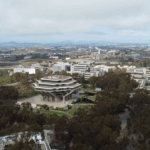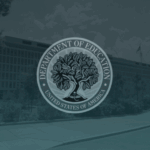Dead Progressive White Guys
Although most will claim it as their guiding philosophy, today’s educrats might find some alarming skeletons in the closet of their progressive forefathers of a century ago.
“One hundred and twenty years ago, a new theory of justice led to modern liberalism,” Thomas West, a professor at the University of Dallas said in a lecture at the Heritage Foundation late last month. This theory, in turn, “led to the prevailing theory in education.”
“Intellectuals in the late 19th Century felt left out of the running of the government,” Dr. West explained. The key distinction between the Founding Fathers and the progressives Dr. West spoke of lay in their concept of freedom. The Founders thought freedom was God-given while the progressives saw liberty as a creation of the state.
Thus, while the Founders believed in limited self-government, the progressives saw the Constitution itself as something to be changed. The progressives of old, like their modern-day counterparts, saw the private sector as something to be regulated and the national government as something to be cultivated. In this camp, Dr. West puts Swift and Rousseau as well as Presidents Theodore Roosevelt and William Howard Taft, although the latter two parted company on changing the U. S. Constitution. (TR and the Bull Moose Party would, WHT would not.)
The independent commissions, panels and agencies, national and international that we are all too familiar with all figured in the old-time progressive’s vision. As a result of the progressive ascendancy in the early Twentieth Century, Dr. West points out, “Much of American History, as we have been taught it, is a lie.”
For example, “Between 1865 and 1912, we had a Golden Age, not an age of the Robber Barons,” [Indeed, Dr. Burt Folsom lays out that history, chapter and verse, in his book The Myth of the Robber Barons.]
But, here is where there is a sharp divide between the old and new progressives. “The progressives were pro-family,” Dr. West said, while modern-day liberals, despite their protestations, usually are not.
Also, there was “the progressive belief that the West is best,” the professor noted. Carried to its logical extreme, as they saw it, those progressives made today’s back-to-basics traditionalist conservatives look like a bunch of sensitive liberals.
“They also believed in white supremacy and colonialism,” Dr. West explains. “This is a key difference with modern liberals.” It most assuredly is.
While the progressive domination of the educational system at all levels remains overwhelming, that school of thought, which once dominated most American institutions, has waned in its influence over the U. S. government, Dr. West concludes. The turning point came 40 years ago.
“In 1965, the progressives achieved near total dominance,” Dr. West said. In that year, Lyndon Johnson took the oath of office for a full presidential term.
The Democratic Congress he carried with him in his rout of Republican nominee Barry Goldwater watched him recite that pledge. On their televisions, his viewing audience included the multitude of academics who voted for LBJ as the “Peace Candidate.”
Those deans and professors would soon be bargaining with mobs of angry anti-war demonstrators chanting, “Hey, hey, LBJ, how many kids did you kill today?” Those mobs would eventually take over the Ivory Tower and bequeath it to their apprentices, long after the Great Society architects had passed the scene.
Malcolm A. Kline is the executive director of Accuracy in Academia.




